Lionel Messi has become the first footballer in the world to be on a contract worth 100 million euros a season, Mediapart and other European media can reveal. Documents supplied by Football Leaks and revealed by the journalistic consortium European Investigative Collaborations (EIC), of which Mediapart is a member, show that on June 30th, 2017, the same day he married his fiancée Antonella Roccuzzo, the Argentine star had agreed a four-year-deal with Barcelona worth more than 400 million euros which will keep him at the Catalan club until 2021.
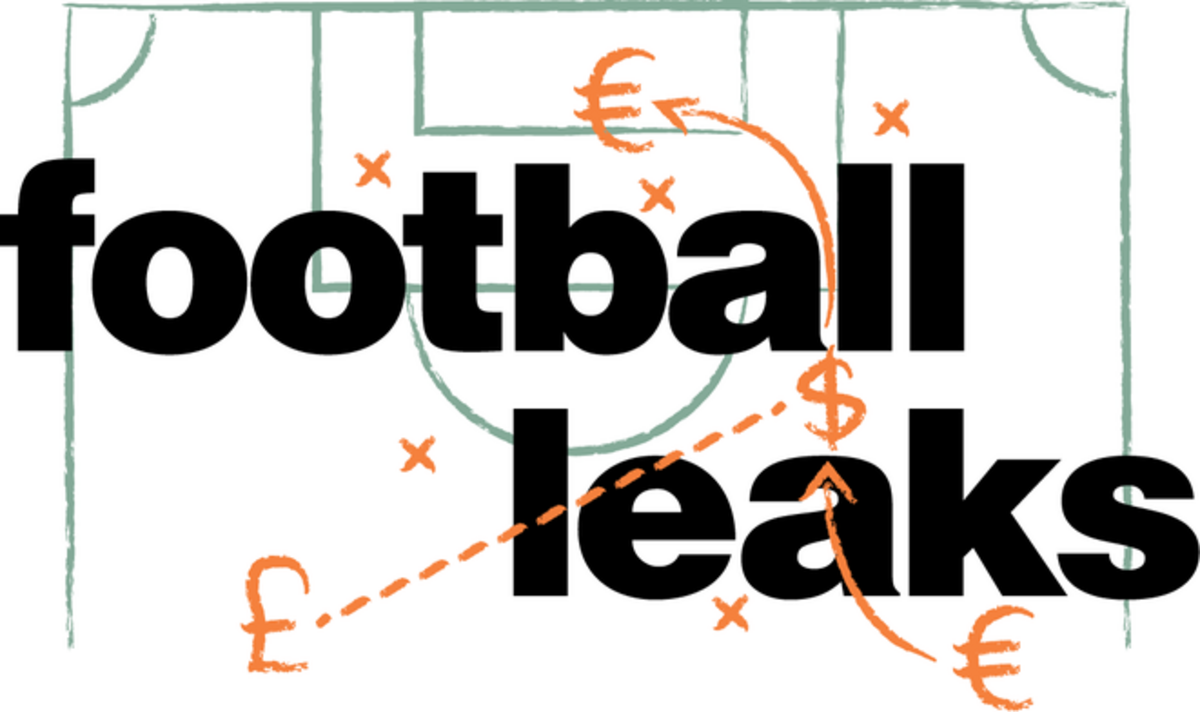
Enlargement : Illustration 1

Separate Football Leaks documents also reveal how Barcelona feared that Messi's charity for disadvantaged children was in effect helping to save the footballer millions of euros in tax. The documents show that the club urged the footballer to pay back taxes they believed he owed the Spanish tax authorities – and ended up footing the bill for this in a bid to keep their star player happy. “We have to remember that [Messi] is the club's most important asset,” a senior Barcelona official told an employee who queried the club's handling of the situation. Messi, his family and Barcelona deny breaking any rules and any wrongdoing.
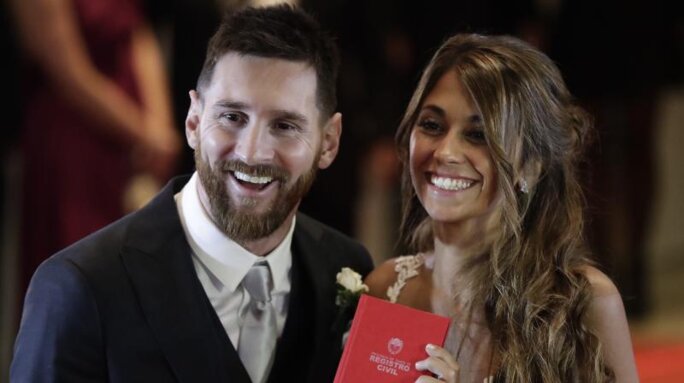
Enlargement : Illustration 2

It is, however, the jaw-dropping salary that Lionel Messi now commands at the Spanish football club that will grab the headlines. The sums are revealed in two documents from Football Leaks, an employment contract and a royalties contract, which have been obtained by German publication Der Spiegel and sent to and analysed by Mediapart and its partners in the EIC network.
They reveal the 400 million-euro deal which means that the diminutive player who grew up in a poor family in Argentina is on a guaranteed minimum of 104,441,346 million euros a season, which equates to 286,140 euros a day or 11,922 euros per hour.
Messi's earnings could, in fact, be even higher than stated in those documents. For the employment contract supplied by Football Leaks, showing the terms offered by Barcelona, dates from June 2017 and it was not signed by Lionel Messi at the time. It was simply signed by the player's father and agent Jorge Horacio Messi. In fact Messi senior prolonged negotiations with the club until November 25th, 2017, when the final contract was signed by the player himself. Though this final contract does not feature in the Football Leaks documents, it is certain that after five months of negotiation by Jorge Messi the sums involved in that final contract are not lower than those in the preliminary version, and could even be higher.
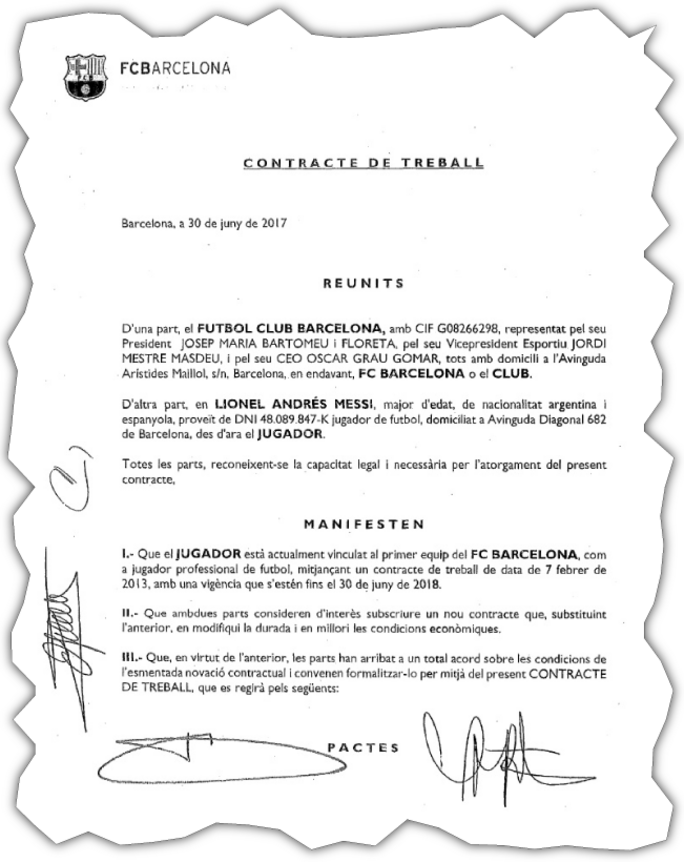
Enlargement : Illustration 3

The figures in the original, preliminary contract are staggering enough, however. They show that Messi is on a basic pre-tax income of at least 71,053,846 million euros a season. Of this 85% is salary and 15% is from royalties. On top of this there is a signing fee of 63.5 million euros and another “loyalty” bonus of 70 million euros for not leaving the club before the end of the four-year-deal. Added up this comes to more than 400 million euros.
Indeed, thanks to a string of other potential bonuses, to be paid for example if Barcelona win La Liga in Spain and the Champions League, Messi could earn a total of up to 122,515,205 euros a year. To put that into context the fourth richest club in Ligue 1 in France, Olympique Marseille, has a total wage bill of 120 million euros for the current season.
But despite the colossal sums involved it is clear that Barcelona were overjoyed that the five-times winner of the prestigious Ballon d'Or award for the world's top player has chosen to stay with the Catalan side. In early July 2017, shortly after Messi's father Jorge had signed the preliminary contract indicating that the star player was intending to stay, the club's director of legal affairs Roman Gomez Ponti sent an email to the club's chief executive Oscar Grau Gomar. In the subject line of the email was just the word ALELUYA ('ALLELUIA') with no fewer than 68 'As' at the end.
Another email supplied by Football Leaks, also written in July 2017, is from the club's president Josep Maria Bartomeu to Jorge Messi, the player's father. It says: “Congratulations everyone! Leo is going to stay here and we all hope that he does.”
Barcelona's eagerness to keep hold of their star was not just shown in their readiness to boost his basic pay but in other ways too. Separate Football Leaks documents show that in 2016 the club had become concerned about Messi's tax affairs in relation to his charity the Leo Messi Foundation. Barcelona's concerns followed a letter it received on April 28th, 2016, from the Spanish tax authorities over the 7.5 million euros that the club had paid to Messi's foundation in the years 2010 to 2013. The authorities wanted more documents and information about those payments.
The tax authorities were clearly wondering whether the donations the football club was paying directly to Messi's charity under terms linked to his employment contract should not be taxed like any other income. As things stood, both Barcelona and Messi were saving themselves millions in taxes. If the Spanish tax authorities were right, this meant that the Spanish state and its taxpayers were unfairly subsiding the wealthy player's charity foundation.
Barcelona were worried by this development. Messi already had his problems with the Spanish tax authorities over a separate issue. Indeed, weeks later, in July 2016 Lionel Messi and his father Jorge were convicted for tax fraud by a Catalan court on three counts of tax fraud between 2007 and 2009 to the tune of 4.1 million euros on image rights.
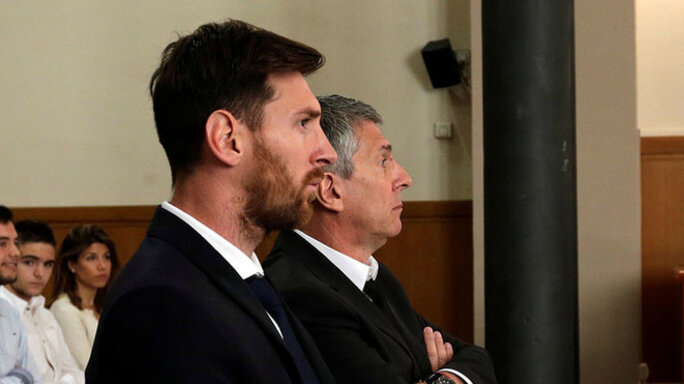
Enlargement : Illustration 4

The football club therefore immediately alerted the Messis about the April 2016 tax inspection, out of “loyalty” as the club put it in an email. Jorge Messi, Lionel's father and agent, replied with a wisecrack: “Don't worry, we know all about these issues.”
But Barcelona FC wanted more clarification and consulted a tax lawyer. His report on June 10th, 2016, made for worrying reading. The tax lawyer considered there was a high risk that the tax authorities would recategorise the club's donations to Messi's foundations as salary payments. For the 2010-2013 period this would mean the club having to find 1.95 million euros in back taxes and Messi himself 3.2 million. Even more troubling was the lawyers' view that Lionel Messi probably would not be allowed simply to repay the money but would face fresh proceedings for tax fraud.
The lawyer said, however, that the player could still avoid the worst. As there had as yet been no formal request for a repayment of taxes, the Argentine player could still pay them voluntarily. Under Spanish law this would mean no criminal proceedings could then be launched. This was the solution the tax expert recommended, especially given the fact that Messi was already facing conviction on other tax matters at the time.
Barcelona FC were in a state of panic. If the player were to face a new conviction for tax fraud there was a strong chance this would lead to imprisonment; he was eventually given a suspended jail term after his conviction in the image rights fraud case in July 2016. That would be catastrophic not just player but also for the club, whose team was built around the player whom some dubbed 'The Messiah'.
The club's president, Josep Maria Bartomeu, was said to be “worried”. He wanted Messi to regularise his tax affairs discreetly. “Please stay close to them [editor's note, the Messi clan], quickly, and make sure that everything is done appropriately,” he wrote to a colleague at the club. But it was a delicate situation. The club had just entered into talks with the player to extend his stay after the expiry of his current contract in 2018. It was not easy to force the player's hand in such circumstances.
'Our most important asset'
At the end of July 2016 the tax expert who had written the original report asked Barcelona if Lionel Messi had agreed to pay the back taxes. He was very worried that the player risked being called in soon by the tax authorities, which would end all chance of him making a voluntary settlement.
The message was apparently passed on to the Messi camp. Urgent meetings were held between the club's executives and the player's tax experts. But his lawyers disagreed with the tax authorities' view that the donations should be taxed like a salary. There was an apparent impasse.
Yet in the end Lionel Messi did agree to pay. This was doubtless because it was Barcelona who dug into their own pockets to settle the tax bill. But as this payment presented problems of its own, it was carried out via a clever financial structure.
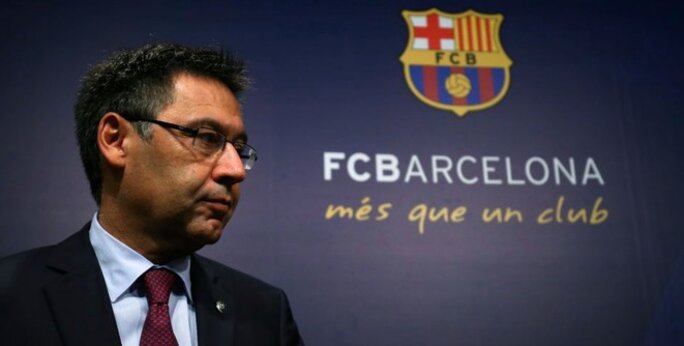
Enlargement : Illustration 5

In October 2016 Barcelona provided Lionel Messi with a loan of 12 million euros, repayable over 24 months to December 2018. But in reality he will not have to repay it. For at the same time Barcelona gave Messi an exceptional bonus of 23.1 million euros for the 2017/18 season, which after tax deductions amounts to 12 million euros – exactly the same amount as the loan. A number of the Football Leaks documents indicate that this payment indeed relates to the settling of Lionel Messi's tax affairs. At one point his father Jorge Messi wrote to the club saying that in reality the money was “a payment to the Treasury, not to LM”.
Other emails from Football Leaks give more details about this bonus arrangement. Out of the 23.1 million euros total, some 13 million (6.5 million net to the player) was supposed to cover the back taxes linked to the charity. Meanwhile around 10 million euros (5 million net to Messi) was supposed to be used to settle another alleged fiscal infringement, this one linked to commissions paid to Jorge Messi. Like lots of other players in La Liga, Lionel Messi got his club to pay his agent – in his case his father – directly, although he was supposed to do it himself.
In the end, Messi did not receive the 23.1 million euro bonus. Several internal emails show that this sum intended to pay the back taxes was instead rolled into the enormous loyalty bonus (133.5 million euros in all) agreed by the club in 2017 with the aim of keeping Messi at Barcelona, as outlined earlier. One advantage of doing this was that it made the operation even harder to detect.
When contacted by the EIC about this arrangement, Jorge Messi did not deny the information. He simply stated that he and his son had “scrupulously respected our tax obligations”. He said that all of Barcelona's payments to his son “have been taxed in conformity with the law and according to the criteria defined by the Spanish authorities” and that the November 2017 contract “was the result of preceding negotiations which took into account all the relevant circumstances which currently affect the market”.
When asked if they should have paid one of its employee's tax bills – and in particular of someone who had been convicted for tax fraud – Barcelona FC said: “That's a question that we can't accept and we're going to analyse it internally with all the seriousness it's due.”
However, an employee at the club had already posed the same question. She is Sabine Paquer, a legal advisor who had been hired a short time before in the club's compliance department. In October 2016 she queried the use of a loan and bonus to Messi to sort out potential tax issues. In an email sent to several club executives she asked if the operation had in fact been approved by the compliance department, and whether they should not seek the advice of an external auditor.
The Football Leaks documents and emails show that these questions exasperated executives at the club. In the end the finance director was asked to tell “Sabine” that “this loan could help to convince Leo to extend his contract” and that “if we don't do it the whole operation could become more difficult (or impossible)”.
Immediately afterwards the finance director explained to Sabine Paquer that she had to toe the line because Lionel Messi was no ordinary individual. “We have to remember that he is the club's most important asset,” including when it came to boosting sponsorship income, he wrote. Sabine Paquer was asked to understand that there were also “more than enough non material reasons to accept the player's demand”.
Messi 1, Sabine 0. Game over.
But the story did not stop there as far as Barcelona were concerned. The club found out the tax implications of its donations to the Leo Messi Foundation were not the only problem; there was also the matter of the foundation itself.
The Leo Messi Foundation was created in Barcelona in 2007 as a private affair which stayed almost entirely within the family. At the start Leo himself was president while his older brother Rodrigo and father Jorge were administrators. Its first director was lawyer Iñigo Juárez who based it at the law firm where he worked. He was one of the very few people outside the family to be involved in the Messi business. It was he who had arranged the tax set up that ultimately led to the player's conviction for tax fraud.

Enlargement : Illustration 6

On May 30th, 2016, a month after the tax inspection that had worried Barcelona FC, the website El Confidencial revealed that the foundation had been operating at the limits of legality for six years. Though it was mandatory to have registered it with the regional authorities in Catalan, the foundation only obtained its authorization on June 6th, 2013. That was six days before proceedings were started against Messi for tax fraud. Soon afterwards Iñigo Juárez left as the foundation's director. The charity also stopped using the law firm as its registered base and set up on its own.
Since that time the foundation has published its accounts and an annual report on its charitable activities. According to a Football Leaks document, however, a notary had informed Iñigo Juárez back in 2009 that the foundation had to be registered. But to no avail. Rodrigo Messi, who is today its president, insists that the problem – which was the fault of a “former advisor” - was only detected in 2013.
The Protectorado y Registro de Fundaciones which is responsible for foundations set up in Catalonia told the EIC that the Leo Messi Foundation had in fact tried to register in 2007 and then again in 2009. But its request was twice turned down because it had not met the “supplementary demands” that had been asked for, and which had only been fulfilled in 2013. However, the administrative body did not go into detail as to exactly how the foundation had caused it a problem up until that point.
Offshore payments
One thing is clear: between 2007 and 2012 the football star's good works took place without any supervision and in complete opaqueness. However, that did not stop Barcelona FC and its own foundation paying at least 8.5 million euros into the Leo Messi Foundation during that period. The tax lawyer who was called in to evaluate the risks for Barcelona after the 2016 tax inspection himself only learnt of this via the El Confidencial report.
Under its first contract with Barcelona FC, signed in 2009, the player's foundation had an obligation to produce annual reports, something it clearly did not do. Nonetheless the contract was renewed in 2013. It took until July 2016 before the foundation, under the pressure of the tax inspection, sent in its reports relating to 2010-2012.
Its official accounts, which have been published since 2013, reveal some exorbitant expenditure. The foundation spent 550,000 euros to renovate the premises which it rents on the ninth floor of a block on Avigunda Diagonal in Barcelona.
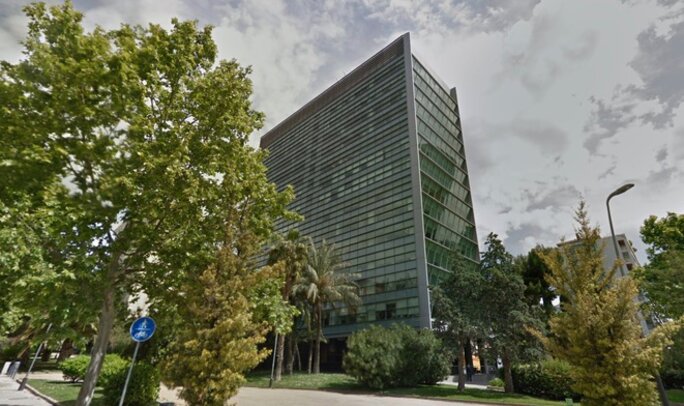
Enlargement : Illustration 7

The accounts also show that Barcelona and its own charity foundation (FFCB) supply 90% of the Leo Messi Foundation's income. Despite that the Leo Messi Foundation pays out some large sums to unidentified service providers in order to try and raise money. The figures show that between 2013 and 2016 it paid out 1.1 million euros in this way, which is more than the total of 1.08 million euros the foundation received in donations from donors other than from Barcelona FC and its charity. It has to be said that those external donors appear to have been affected by the publicity surrounding Messi's 2016 conviction for tax fraud. For in that year his foundation received no donations at all, other than those from Barcelona and the FFCB.
The Football Leaks documents also show that Messi's foundation sent at least one million euros to its offshoot in Argentina, to carry out its charitable functions. Yet this second foundation in Argentina has never published any accounts itself. A former service provider to the Leo Messi Foundation Argentina lodged an official complaint, alleging that the player's family diverted the money – a claim the family categorically deny.
According to documents that have been revealed in Argentina by the newspapers La Nacion and ABC, documents the EIC has also obtained, the Leo Messi Foundation Argentina asked some of its donors to send several hundreds of thousands of euros to an account held by a front company registered in London. This company is run by a figurehead who was also involved in the tax fraud relating to Lionel Messi's image rights. Questioned by the EIC, Rodrigo Messi said that the Argentine foundation respected all its legal obligations and that the complaint by the former service provider had been dismissed by the authorities.
Mediapart understands that after the 2016 tax inspection relating to Messi's foundation, Barcelona FC suspended its payments to the charity in 2016. It only resumed them after the tax situation had been sorted out. Its donations are now also considered to be salary payments, on which the relevant taxes are paid.
Barcelona still clearly intends to contribute to its star player's charity, however. As part of the new 2017 contract with Messi, the club signed a new agreement between its own foundation and the player's. Under this the FFCB will pay 3.5 million euros to the Leo Messi Foundation over five years.
Nonetheless, the football club has added some tough clauses to its agreement between the foundations. As a result the Leo Messi Foundation has made a commitment that “all the money provided by the FFCB … is destined exclusively to directly helping children”. When it considers that a projects is large in scale or complex the FFCB can nominate its own “coordinator” to supervise what happens on the ground. The agreement also stipulates that the Leo Messi Foundation has to produce not just annual reports but also “all documentary proof relating to all the expenditure that the FFCB has funded”.
Contacted by the EIC, Jorge Messi replied by email on his own behalf and also that of his son and the foundation. He said that their “internal policy” was “not to reply to the types of questions” that had been sent to them. However, given the “lack of accuracy” in EIC's “data and information” he would give a few partial responses. In particular he said that, apart from the circumstances over which they were convicted, he and his son Lionel had “scrupulously respected their tax obligations”. He said that he would have recourse to “all possible judicial proceedings” if the EIC media published “false or biased” information. Finally, Jorge Messi said that the EIC's data could only have been obtained by unlawful means which “could constitute a criminal offence”.
Rodrigo Messi, who is president of the Leo Messi Foundation, told the EIC that the foundation had “always fulfilled its legal obligations” and “always responded in good time to requests from the Spanish authorities”. He said that the foundation is “under the control of the Spanish authorities and has never been involved in legal proceedings or punished with a fine resulting from a failure to respect its legal obligations”.
----------------------------------------------------------------------------------------------------
English version by Michael Streeter


